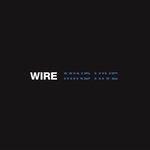
Wire Mind Hive
(Pink Flag)
I’m inclined to judge Mind Hive on its own merits, because it’s always a little unfair to compare and contrast any brand new album with an artist’s previous material. But in the case of a band as prolific and acclaimed as Wire, who lay claim to two of the greatest post-punk records of all time with their 1977 debut Pink Flag and 1978’s Chairs Missing (not to mention the unfairly overshadowed 154, another stellar suite of songs, released in ‘79), it’s extremely hard to do that. They came out so fully formed in the first several years of their career—firing on all cylinders and crafting a punk aesthetic all their own—that maintaining their creative momentum was sure to be a challenge. In their monumental, storied, forty-year-plus career, I think they’ve succeeded in keeping the art-punk train chugging, and I’m happy that they’re still putting out music in the new millennium. But I also think it’s a sad and unfair fact of life that, at some point, no matter how talented you are or how unique your sound is, those tracks sometimes just begin to wear out.
There’s probably a fair amount of people who’ll say Wire’s train derailed since the end of the 80s, or that their first three LPs are the only ones you really need to hear—but there's also a large camp who are very supportive of Wire’s newer material. So in preparation for this review, I revisited their prior record, Silver/Lead (2017), and bits and bobs from some of their earlier 2000s releases like Send and Object 47. While I was already deeply familiar with those first couple records (full disclosure: Pink Flag is one of my favorite albums ever), I wanted to get a bigger picture of the London post-punk band's sizeable catalog so I wouldxn have more contemporary reference points. And I have to say, there are some terrific cuts from the band’s newer LPs, certainly more than a lot of listeners give them credit for. Tracks like Mr. Marx’s Table and The Agfers of Kodack from 2003’s Send and Moreover from Red Barked Tree (2010) serve as firm reminders of Wire’s knack for tight, raw, and charmingly cryptic songwriting. And while I would argue that some of that same energy—angular riffage and abstract attitude—carried over to Silver/Lead, with Mind Hive, things have been diluted even further and with diminishing returns.
Attempting to put Wire’s history aside, even as a singular, standalone release, Mind Hive is middling. Some tracks are engaging and perk up your ears, while others are flat-out dull and uninspired. Cactused is one such moment where the record’s spirit is lifted, seamlessly melding Colin Newman’s ever-moody guitar with Graham Lewis’ jackhammer bass and backing vocals into a high-flying art-punk extravaganza. But beyond a handful of other highlights (I dig the new-wave-esque groove on Off the Beach), too often do I find myself completely tuning out whenever I play through this album, which usually happens at track five, Unrepentant. It’s one of Mind Hive’s smoother, more contemplative songs, utilizing an acoustic guitar instead of Newman’s usual electric setup, but neither the hook nor the melody on that track are strong enough to elevate it above room temperature. It doesn’t help that it’s followed by Shadows, an equally flaccid ballad that further lulls me into boredom.
Wire’s music is supposed to make you think like an art student and rage like a nightclubber in equal measures, something they consistently accomplish when they’re on their game. But with Mind Hive, they’ve settled for less, and you’ll instead be daydreaming in Foundations of Illustration III and tapping your foot to the muffled beats of the dance class next door.
30 January, 2020 - 17:51 — Jackson Glassey